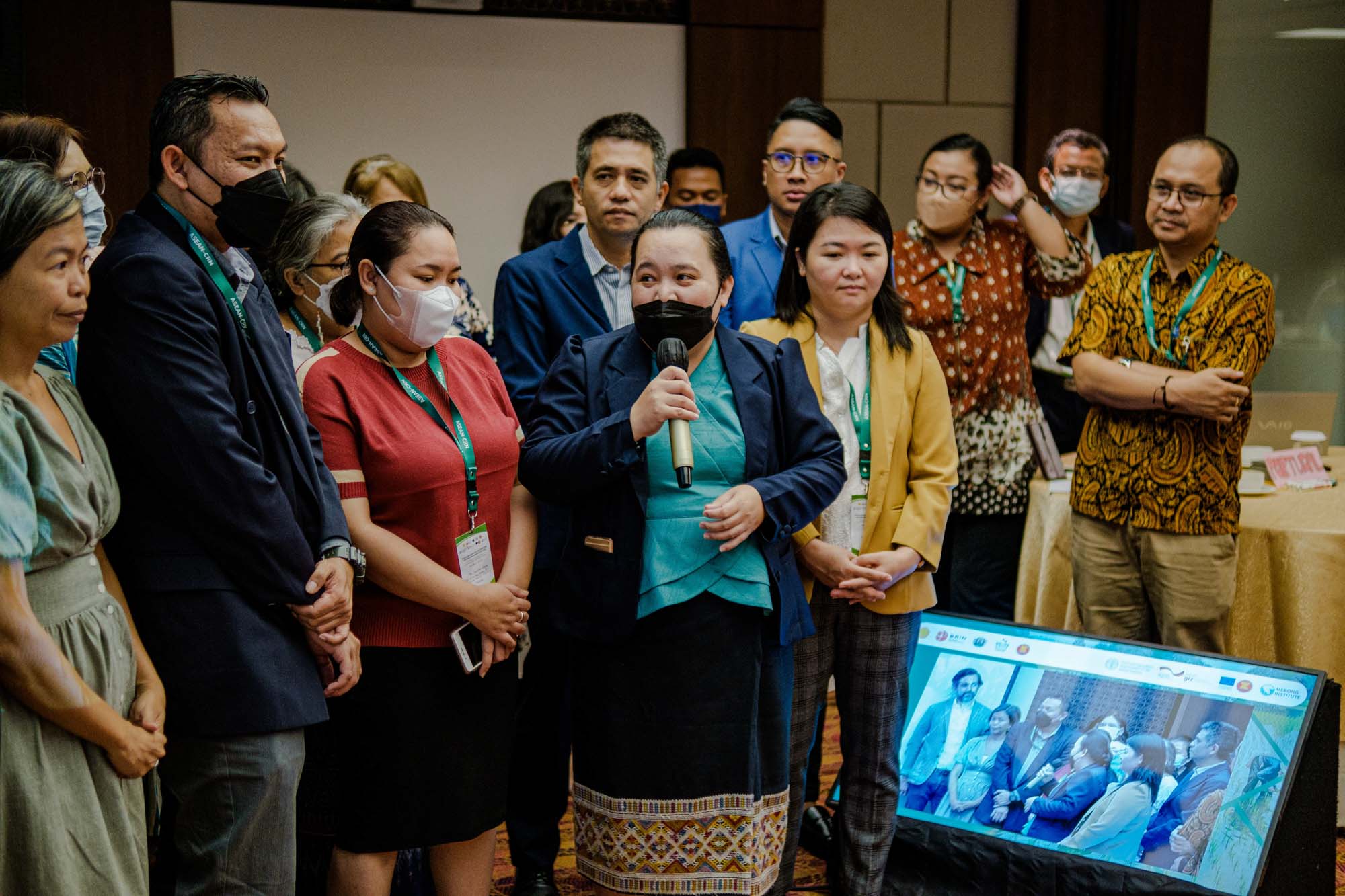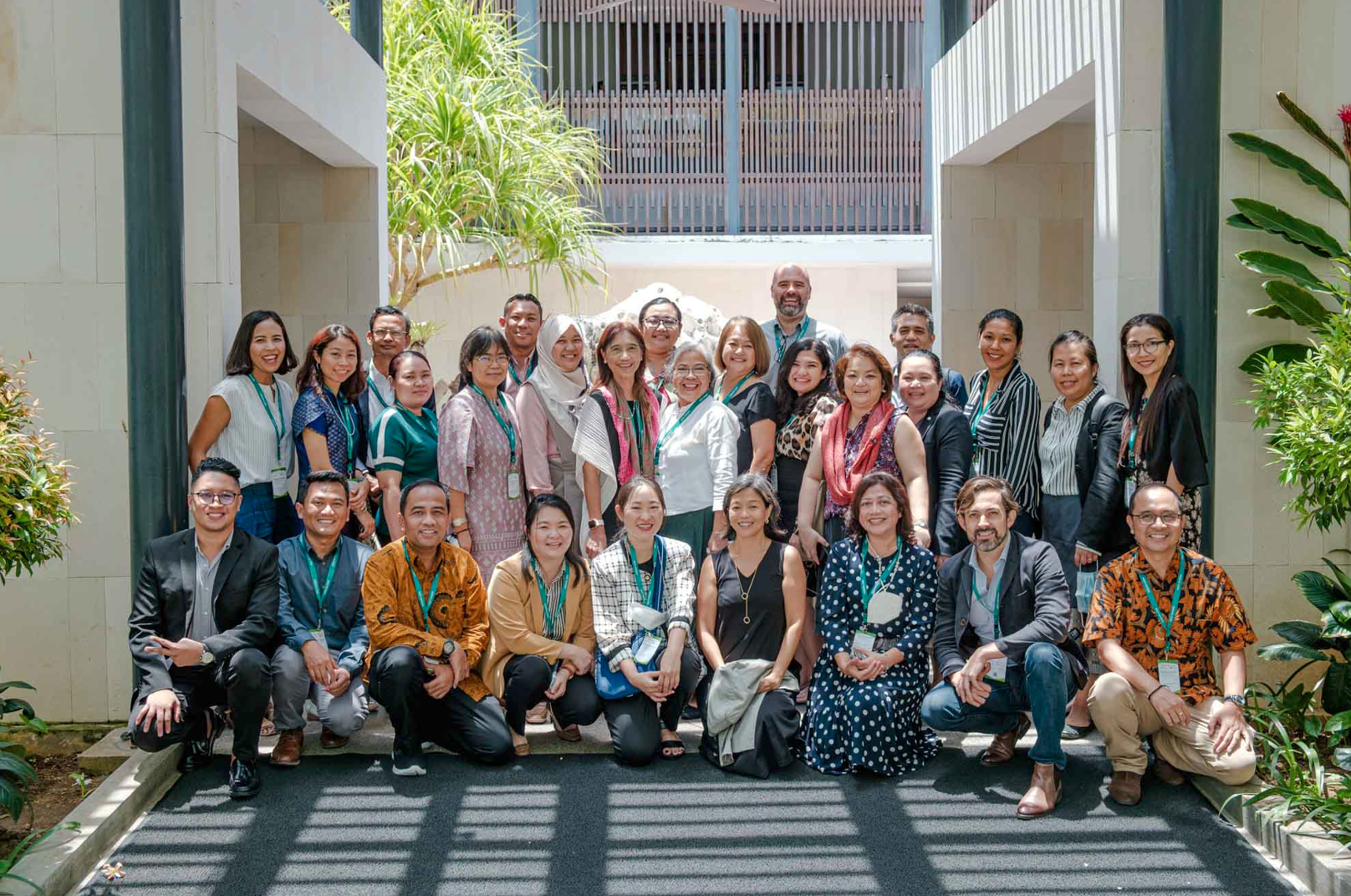ASEAN-CRN embarks on defining net zero and low carbon emission pathways

In this context, national representatives serving as focal points for the ASEAN Climate Resilience Network (ASEAN-CRN) and partners gathered in Bali, Indonesia, from September 27 to 29 for an event titled “Transformation to Low Emissions and Resilient Agrifood System: A Knowledge Exchange Event and Climate Policy Negotiations Training”. Participants explored net zero and low carbon emission concepts in relevance to agriculture. Moreover, they acquired the essential knowledge and skills needed for COP27, enabling knowledge and experience exchange among peers and network.
The Indonesia National Research and Innovation Agency (BRIN), together with the Thailand Department of Agriculture (DOA) as Chair of ASEAN-CRN, hosted the event.
Assessing the feasibility to accelerate the region’s transition to a low-emission agrifood system
After the opening remarks from the host and partner organisations, the morning session of Day 1 provided participants with the experts’ overview of agriculture’s zero and carbon neutrality concepts.
The first session started with Mr Beau Damen, FAO-Regional Office for Asia and the Pacific (FAO-ROAP). With the title of “Resilient & low emissions agriculture: The case for transformative actions”, he summarized key findings from the Sixth Assessment Report of the United Nations Intergovernmental Panel on Climate Change (IPCC Report). It calls for a significant paradigm shift, particularly in food systems. He emphasized the importance of climate-resilient and low-emissions agrifoods systems to tackle climate change impacts and deliver adaptation and mitigation co-benefits.
This was followed by an assessment of the feasibility of accelerating the region’s transition to low emissions and resilient agrifood systems.
Dr Ciniro Costa Junior from the Alliance of Bioversity International and the International Center for Tropical Agriculture (CIAT) talked about the net-zero agenda in the ASEAN context remains challenging yet attainable. “There is huge GHG emission mitigation potential from the land use and agriculture sectors, particularly in rice production, protection and restoration in the natural landscape.” Dr Costa explained.
Lastly, the participants gained insights from the private sector, which shared business models on technology and finance for rice farmers. Mr David Chen, CEO of AgreG8, an Agri-FinTech platform from Singapore, gave an example of how technology was applied and supported MRV efforts in Myanmar. His presentation on “Use of technology and community involvement in MRV in rice fields” talked about the pilot project involving 48 farmers from Myanmar.
Led by the expert and graphic illustrator, the participants participated in the visioning exercise. The visioning exercise in the afternoon allowed CRN focal points to re-visit a visual vision map from March 2022. The exercise now focuses on regrouping the future’s vision. In addition, it identified transformative actions and prioritized interventions.
Gearing up for COP 27
On days 2 and 3, the focus was on the basics of the United Nations Framework Convention on Climate Change (UNFCCC) and negotiation processes and protocols. Besides the ASEAN-CRN, the ASEAN Negotiating Group for Agriculture (ANGA) focal points honed their climate negotiation skills in preparation for COP27.
Mr Gonçalo Cavalheiro, a long-time negotiator trainer, explained the UNFCCC framework and negotiation processes to the ANGA focal points. Several seasoned climate negotiators shared their insights during the training. Interest was also expressed in the KJWA, which potentially recommends a decision to adopt in COP27.
The day ended with a negotiation simulation where the ANGA focal points acted as climate negotiators. Participants expressed the training was beneficial to provide a clear fundamental understanding of the climate negotiation landscape under the UNFCCC framework. In addition, many expressed the course content was also applicable in their professional setting.
Organisations and support
The organisation of the event was supported by the Federal Ministry for Economic Cooperation and Development (BMZ) through the GIZ “Promotion of Sustainable Agricultural Value Chains in ASEAN” (ASEAN AgriTrade) with support from the Mekong Institute; the FAO-Regional Office for Asia and the Pacific (FAO-ROAP), and the Enhanced Regional EU-ASEAN Dialogue Instrument (E-READI).
For more information on this event, please visit the ASEAN-CRN website at this link

Contact person
Moch Taufiqul Mujib
Promotion of Sustainable Agricultural Value Chains in ASEAN (ASEAN AgriTrade)
Key buzzwords
Climate, negotiation, COP27, net zero

